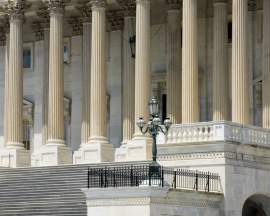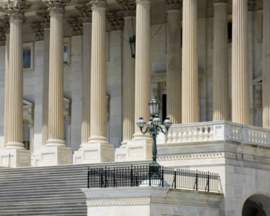
Major Decisions-Regents of U. of California v. Bakke

Popular In Constitution
Purpose Of Lifetime Appointment And Pros And Cons Enumerated Powers Bicameral Legislature Background Article 3 Of The Constitution We The People 1st Amendment Who Wrote The Constitution Judicial Review Equal Protection Clause Three Fifths Compromise 10th Amendment 5th Amendment
The Supreme Court of the United States seems to have dealt with the many numerous issues that have proven to be of controversy in the United States in modern history. One of these disputes is the institution of affirmative action in the United States.
Affirmative Action history can be argued to have its roots since the abolition of slavery and the suffrage movements of both African-Americans and women. However, in modern applications, the concept of affirmative action would be more distinctly defined in the Regents of the University of California v. Bakke Supreme Court case. Through this case, the affirmative action agenda would be brought before the courts and its outcome would define the scope of the application of affirmative action in terms of its constitutionality.
It is important to note that the Bakke case did not involve a minority
seeking to employ affirmative action as a means to accomplish a certain act. In
fact, it was something more along the lines of its opposite occurrence, in
which a white student sought admission into the University of California Davis
Medical School.
Allan Bakke had applied to the University on two separate occasions and was denied admission, while students that were considered members of minority groups were being accepted who had significantly lower academic scores and accomplishments than Bakke. Bakke would then bring the matter to the courts, stating that the affirmative action program of the school was being used to exclude him from admission based on race. Therefore, such action was a direct violation of the Fourteenth Amendment under the Equal Protection Clause.
The
University would subsequently provide for a counter-claim which declared that
the school's affirmative action special admission program was carrying out its
duties in a lawful manner.
The Chief Justice presiding over the Bakke case was Warren E. Burger. After investigating the
matter and evaluating the special program implemented by the University, the
Supreme Court would rule in favor of Bakke. The Supreme Court would find that
the practice of the University instituting a form of quotas regarding the
acceptance of minority students was an unconstitutional practice. For example,
the Davis Medical School would reserve 16 seats out of 100 for minority
students, leaving the remaining 84 seats to be filled under regular admissions
procedures.
The Supreme Court ruled that the University could not take race into account in regards to making admissions decisions. This was in direct violation of two Constitutional statutes: Title VI of the Civil Rights Act of 1964 and the Fourteenth Amendment. Title VI stated that no racial or ethnic preference shall be given or granted to any particular group by any institution or program that was Federally funded. Under the Fourteenth Amendment, it was deemed that reserving a number of seats for minority students denied Bakke equal protection as provided by the Constitution.
However, it is important to note that in the actual decision in the Bakke case, there was no actual majority reached by the Supreme Court. Furthermore, the Court did not rule on the implementation of the affirmative action practice in general. Two factors were considered by the Supreme Court. The factors were whether or not race could be used as a factor among many others in admissions programs and whether a program could exclude members using race as a basis. The majority would only be reached--and a slight one at that--on the matter of members being excluded, which was deemed unconstitutional.
NEXT: Major Decisions-Roe v Wade





















